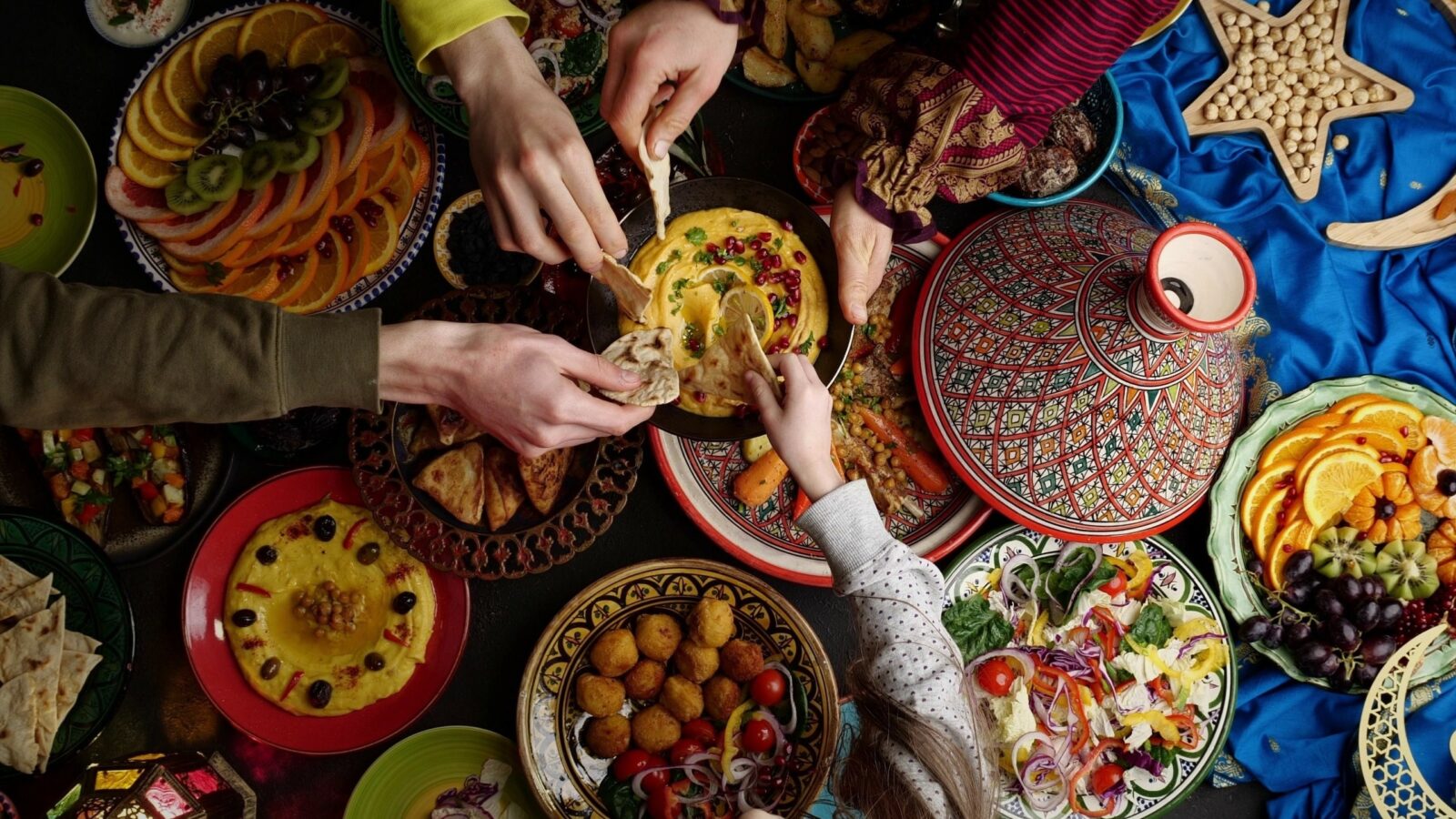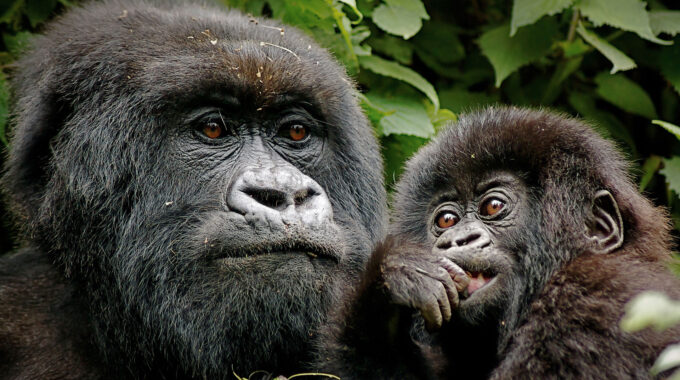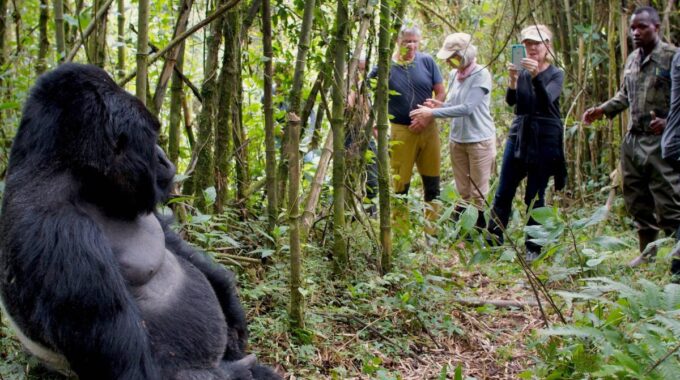Luxury Lodges Near Volcanoes National Park Luxury Lodges Near Volcanoes National Park: Few travel experiences…
Local Cuisine to Try During Your Stay in Rwanda
Local Cuisine to Try During Your Stay in Rwanda

Local cuisine in Rwanda: Rwanda is a land of breathtaking landscapes, warm hospitality, and vibrant cultural heritage, and this is perfectly reflected in its local cuisine. When you embark on your gorilla trekking adventure in Rwanda, your journey won’t be complete without tasting the flavors that define this country’s culinary soul. From hearty stews to fresh tropical fruits, the Rwandan food scene offers a unique blend of traditional simplicity and delicious, earthy flavors.
In this blog, we’ll explore the top Rwandan dishes to try during your stay, where to find them, and how embracing local cuisine can deepen your cultural experience.
1. Understanding Rwandan Food Culture
Rwandan cuisine is largely based on local staples like plantains, sweet potatoes, beans, cassava, and maize, with meat typically reserved for special occasions or wealthier households. As a landlocked country, Rwanda’s culinary landscape is shaped by its geography and agricultural roots, with an emphasis on fresh, organic ingredients sourced from local farms.
Eating in Rwanda is more than sustenance — it is a social experience that often involves family, community, and respect for tradition.
2. Must-Try Traditional Rwandan Dishes
Here are some of the most beloved traditional dishes you’ll want to sample during your visit:
2.1. Isombe
Isombe is a delicious vegetarian dish made from cassava leaves cooked with peanut butter, palm oil, onions, and sometimes mixed with fish or meat. It’s typically served with rice, plantains, or ugali (cassava porridge).
Where to try it: Most Rwandan homes and local restaurants serve Isombe — it’s a common dish in both urban and rural settings.
2.2. Ugali (or Ubugali)
A staple across East Africa, ugali is a dense porridge made from cassava flour or maize flour. It’s typically served as a side to stews or vegetables and is eaten using the fingers.
2.3. Brochettes
Brochettes are juicy skewers of grilled meat, usually goat, beef, chicken, or fish. They’re a favorite at bars, roadside stalls, and restaurants, often paired with fried ibirayi (Rwandan potatoes) or akabenz (fried pork).
Try it at: Popular hangouts like Sundowner in Kigali, or local eateries around Musanze near Volcanoes National Park.
2.4. Akabenz (Pan-Fried Pork)
Akabenz is deep-fried pork belly typically served with ibihaza (boiled pumpkin), cassava, or fried potatoes. The meat is crispy and tender, seasoned with garlic, onions, and chili.
2.5. Ibihaza (Pumpkin with Beans)
Ibihaza is made by cooking pumpkin pieces with red kidney beans, sometimes with a dash of palm oil. It’s nutritious and popular in rural areas.
2.6. Matoke (Steamed Plantains)
Matoke features steamed green plantains mashed and cooked with onions, tomatoes, and sometimes peanut sauce. It’s filling and comforting, often eaten with stews.
2.7. Rwandan Chapati
Chapati is a soft, pan-fried flatbread served with beans, lentils, or scrambled eggs — great for breakfast or snacking.
3. Street Food and Snacks in Rwanda
Rwandan street food offers tasty and affordable options:
- Mandazi – Fried doughnuts with a sweet flavor.
- Sambusa – Deep-fried pastries with meat or lentils.
- Grilled corn – Sold by roadside vendors.
- Fried plantains – Crispy, sweet, and savory.
To enjoy street food safely, stick to vendors recommended by your local tour guide.
4. Popular Drinks and Beverages
4.1. Urwagwa (Banana Beer)
Urwagwa is a traditional alcoholic drink made from fermented bananas and sorghum flour, consumed during celebrations.
4.2. Ikivuguto (Fermented Milk)
This sour, yogurt-like drink is rich in probiotics and enjoyed during breakfast or after meals.
4.3. Rwandan Coffee and Tea
Rwanda produces some of the finest coffee and tea in the world. Try Arabica coffee from volcanic slopes or black tea with ginger or lemongrass.
Visit a plantation tour: Explore coffee plantations near Gisenyi or Nyungwe Forest for an educational and delicious experience.
5. Where to Eat: Best Places to Try Rwandan Cuisine
- Heaven Restaurant (Kigali) – Upscale Rwandan and fusion dishes.
- Afrika Bite (Kigali) – Home-cooked traditional meals.
- Volcanoes Boutique Hotel (Musanze) – Post-trek meals with local flavor.
- The Garden Place Hotel (Kinigi) – Peaceful setting with local menu.
6. Culinary Experiences and Food Tours
Consider enhancing your culinary journey with:
- Cooking classes with Rwandan chefs or cooperatives.
- Farm-to-table experiences where you harvest and prepare food.
- Visiting local markets like Kimironko Market in Kigali for produce and spices.
7. Dietary Needs and Traveler Tips
- Vegetarians can enjoy dishes like isombe, ibihaza, and beans.
- Allergy concerns? Notify your guide or lodge in advance.
- Drink bottled water and choose clean, freshly cooked food.
- Pack energy bars or snacks during trekking.
8. Why Trying Local Cuisine Matters
Engaging with Rwanda’s cuisine allows you to:
- Support local farmers and food artisans.
- Understand cultural traditions.
- Create memorable connections through shared meals.
Whether it’s brochettes after a gorilla trek in Volcanoes National Park or banana beer in a village, food is a memory you’ll cherish.
Final Thoughts: Taste the Soul of Rwanda
When you visit Rwanda, don’t just witness the country’s natural beauty — taste it. From the forests of Volcanoes National Park to the bustling markets of Kigali, every bite tells a story.
At Gorilla Rwanda Safaris, we immerse you in the full Rwandan experience. Ask us about adding a culinary tour, cooking class, or food tasting to your itinerary. The best journeys feed your soul — and your appetite.
Related Blogs You May Enjoy
- Best Time to Visit Rwanda for Gorilla Trekking
- Top Packing List for Gorilla Trekking in Rwanda
- How to Book Gorilla Permits in Rwanda
- Luxury Lodges Near Volcanoes National Park
External Resources



